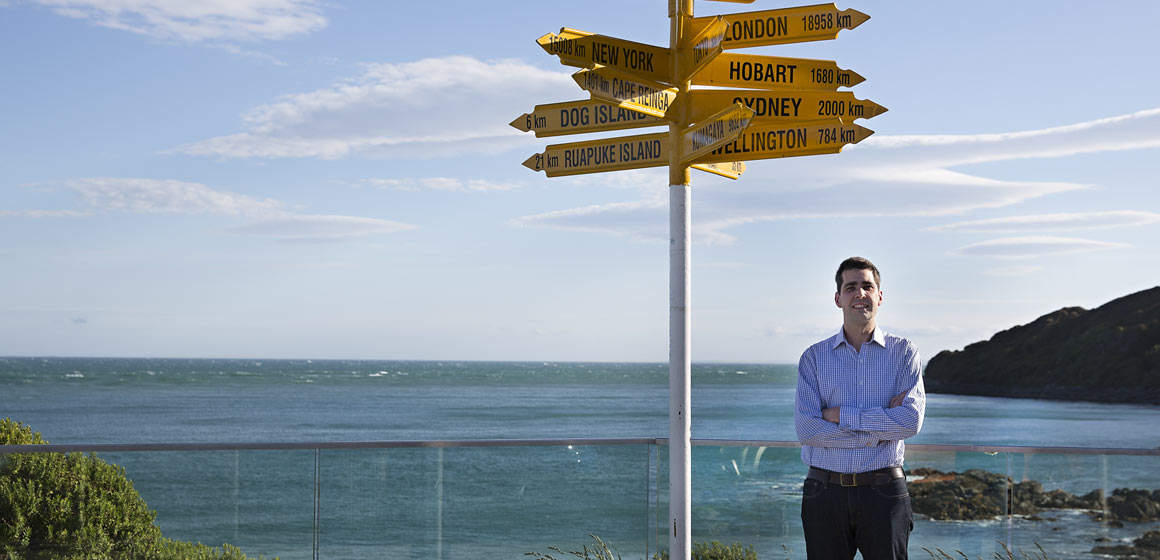
Dr Michael Stevens (History) describes his research on the history of the Southland town of Bluff as both smaller and bigger than national-level history.
Stevens is researching the history of the port town from 1800 to 2000, focusing in part on the role of Māori in the British Empire.
“One of the criticisms of New Zealand history,” says Stevens, “is that it aggregates different parts of New Zealand and then sort of averages them out into a general picture that often doesn't reflect any particular part of these islands.”
Stevens argues that forms of history produced by the Treaty of Waitangi claims' process have exacerbated this, by collapsing the particular experience of Māori communities, such as Bluff, into what has been termed “a general narrative of loss”.
“The project aims to shed light on New Zealand's incorporation into an expanding capitalist world economic system and the ways in which this – as well as colonial governments – impacted upon Māori, both negatively and positively.”
“I agreed that Māori disempowerment was widespread and wide-ranging, but it was also uneven and nowhere was it absolute. The project seeks to test the idea that Bluff-based Kai Tahu were participants in, as well as victims of, the British Empire.”
Stevens gives the example of Kai Tahu people using Bluff as a base for seasonal mutton-birding, because it was a place that provided employment opportunities at the local freezing works and on wharves and ships, supplying products for Britain.
He adds that New Zealand historians are preoccupied with land-based histories and he hopes that his research will contribute towards “putting the coast and the sea more fully into New Zealand history”.
Born and raised in Bluff and of Kai Tahu and Pākehā descent, Stevens is using the experiences of six generations of his own family, along with those of other Bluff families, to help tell the story. This includes the use of family-held records, notably diaries. “This approach,” he says, “grounds big processes in people, thereby personalising history and giving it a warmth.”
Stevens initially received some financial support from the Bluff Community Board to attend the University of Otago as an undergraduate. The history lecturer says that he therefore welcomes the opportunity to give something back to the community, by unlocking archival records and putting them in the hands of people interested in history.
The 34 year old has set up a project website and Facebook page as part of his engagement with the local community, and is planning public talks, conference presentations, journal articles and a book on his three-year research project.
Funding
- Marsden Fast-Start Grant
